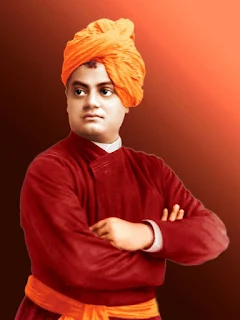Who is the father of culture in India describe?
India has a rich and diverse culture that spans thousands of years. It has been shaped by the contributions of numerous scholars, philosophers, and thinkers who have left an indelible mark on Indian history. One of the most influential figures in shaping Indian culture was Swami Vivekananda, who is often referred to as the "father of modern Indian culture."
Born in 1863 in Calcutta, Swami Vivekananda was a philosopher, social reformer, and spiritual leader. He is best known for his role in popularizing Hinduism and yoga in the West and for his efforts to modernize Indian culture. Vivekananda was a disciple of the Indian mystic and saint Sri Ramakrishna Paramahamsa, who had a profound influence on his life and teachings.
Vivekananda was a great advocate of the Vedanta philosophy, which is based on the ancient Hindu scriptures, the Vedas. He believed that the essence of all religions was the same and that the ultimate goal of human life was to realize the divinity within oneself. Vivekananda was also a strong believer in the power of education and advocated for the establishment of a modern educational system in India that would be grounded in the principles of Vedanta.
One of Vivekananda's most significant contributions to Indian culture was his efforts to promote the idea of a universal religion. He believed that all religions were different paths to the same ultimate truth and that there was no need for religious conflict or intolerance. In his famous speech at the Parliament of the World's Religions in Chicago in 1893, Vivekananda declared that "sects and creeds have no place in religion."
Vivekananda was also a strong advocate of social reform in India. He believed that the caste system, which had been a cornerstone of Indian society for centuries, was a major obstacle to social progress and must be abolished. He also fought against the practice of child marriage and the mistreatment of widows in Indian society.
Vivekananda's teachings had a profound impact on Indian culture and society. He inspired a generation of Indian thinkers and leaders to work towards the modernization and reform of Indian society. His emphasis on the importance of education and his advocacy for a universal religion continue to resonate with people around the world today.
In conclusion, Swami Vivekananda was a visionary leader who played a significant role in shaping modern Indian culture. His teachings on Vedanta, universal religion, and social reform have had a lasting impact on Indian society and continue to inspire people around the world. He remains one of the most important figures in Indian history and a true champion of the Indian spirit.

